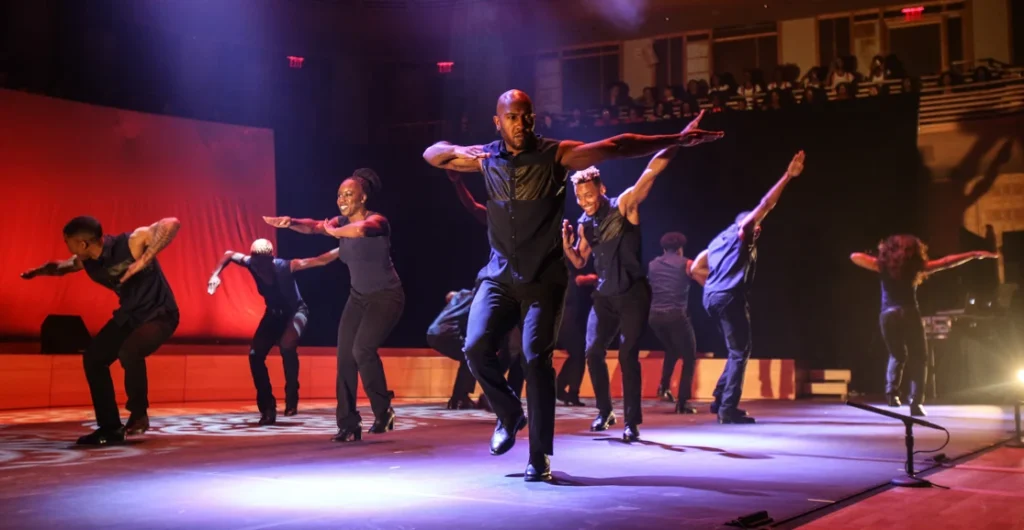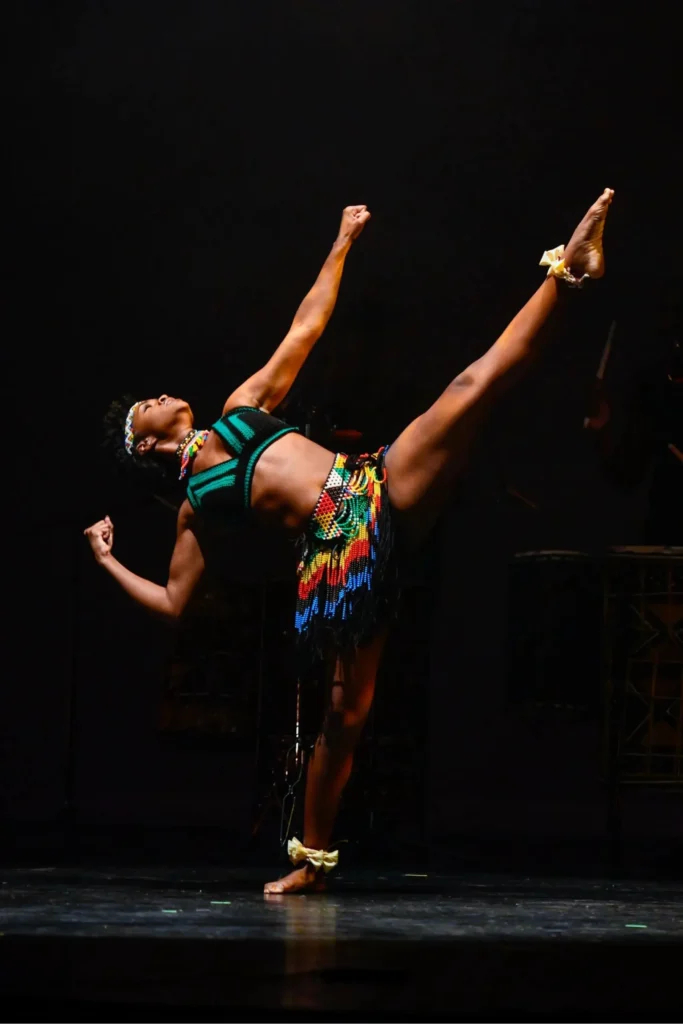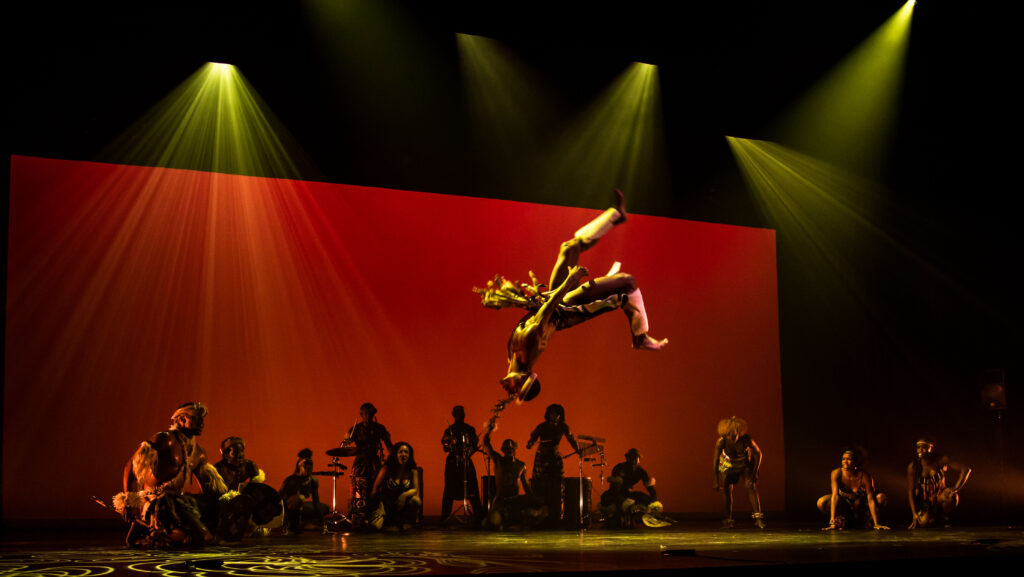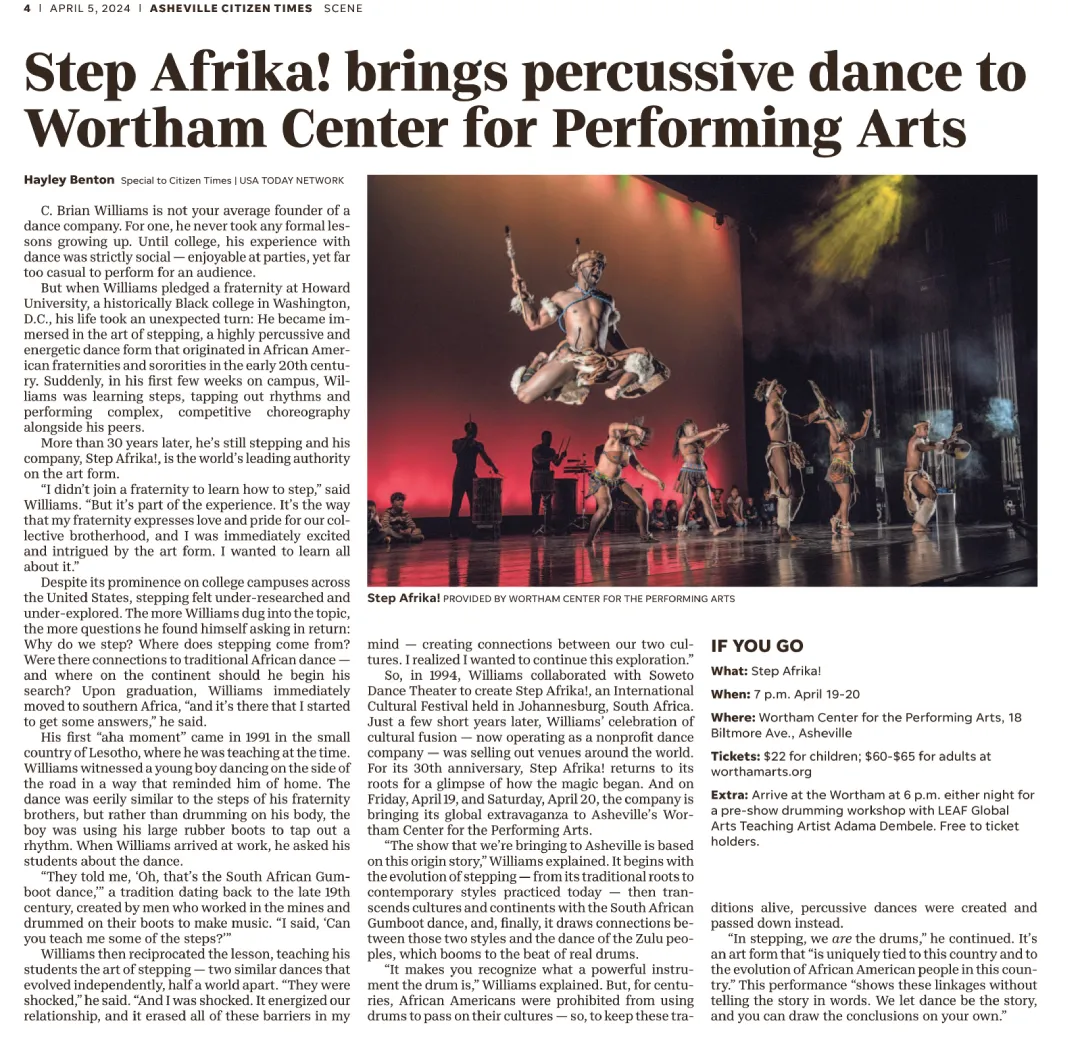As seen in Asheville Scene / Asheville Citizen Times, April 5, 2024
C. Brian Williams is not your average founder of a dance company. For one, he never took any formal lessons growing up. Until college, his experience with dance was strictly social — enjoyable at parties, yet far too casual to perform for an audience.
But when Williams pledged a fraternity at Howard University, a historically Black college in Washington, D.C., his life took an unexpected turn: He became immersed in the art of stepping, a highly percussive and energetic dance form that originated in African American fraternities and sororities in the early 20th century. Suddenly, in his first few weeks on campus, Williams was learning steps, tapping out rhythms and performing complex, competitive choreography alongside his peers.
More than 30 years later, he’s still stepping — and his company, Step Afrika!, is the world’s leading authority on the art form.
“I didn’t join a fraternity to learn how to step,” said Williams. “But it’s part of the experience. It’s the way that my fraternity expresses love and pride for our collective brotherhood, and I was immediately excited and intrigued by the art form. I wanted to learn all about it.”
Despite its prominence on college campuses across the United States, stepping felt under-researched and under-explored. The more Williams dug into the topic, the more questions he found himself asking in return: Why do we step? Where does stepping come from? Were there connections to traditional African dance — and where on the continent should he begin his search? Upon graduation, Williams immediately moved to Southern Africa, “and it’s there that I started to get some answers,” he said.

His first “aha moment” came in 1991 in the small country of Lesotho, where he was teaching at the time. Williams witnessed a young boy dancing on the side of the road in a way that reminded him of home. The dance was eerily similar to the steps of his fraternity brothers, but rather than drumming on his body, the boy was using his large rubber boots to tap out a rhythm. When Williams arrived at work, he asked his students about the dance.
“They told me, ‘Oh, that’s the South African Gumboot dance,’” a tradition dating back to the late 19th century, created by men who worked in the mines and drummed on their boots to make music. “I said, ‘Can you teach me some of the steps?’”
Williams then reciprocated the lesson, teaching his students the art of stepping — two similar dances that evolved independently, half a world apart. “They were shocked,” he said. “And I was shocked. It energized our relationship, and it erased all of these barriers in my mind — creating connections between our two cultures. I realized I wanted to continue this exploration.”

So, in 1994, Williams collaborated with Soweto Dance Theater to create Step Afrika!, an International Cultural Festival held in Johannesburg, South Africa. Just a few short years later, Williams’ celebration of cultural fusion — now operating as a nonprofit dance company — was selling out venues around the world. For its 30th anniversary, Step Afrika! returns to its roots for a glimpse of how the magic began. And on Friday, April 19 and Saturday, April 20, the company is bringing its global extravaganza to Asheville’s Wortham Center for the Performing Arts.
“The show that we’re bringing to Asheville is based on this origin story,” Williams explained. It begins with the evolution of stepping — from its traditional roots to contemporary styles practiced today — then transcends cultures and continents with the South African Gumboot dance, and, finally, it draws connections between those two styles and the dance of the Zulu peoples, which booms to the beat of real drums.
“It makes you recognize what a powerful instrument the drum is,” Williams explained. But, for centuries, African Americans were prohibited from using drums to pass on their cultures — so, to keep these traditions alive, percussive dances were created and passed down instead.
“In stepping, we are the drums,” he continued. It’s an art form that “is uniquely tied to this country and to the evolution of African American people in this country.” This performance “shows these linkages without telling the story in words. We let dance be the story, and you can draw the conclusions on your own.”
IF YOU GO
What: Step Afrika!
When: 7 p.m. April 19 and 20
Where: Diana Wortham Theatre, Wortham Center for the Performing Arts, 18 Biltmore Ave., Asheville
Tickets: $22 for children; $60-$65 for adults
Extra: Arrive at the Wortham at 6 p.m. either night for a pre-show drumming workshop with LEAF Global Arts Teaching Artist Adama Dembele. Free to ticket holders.




